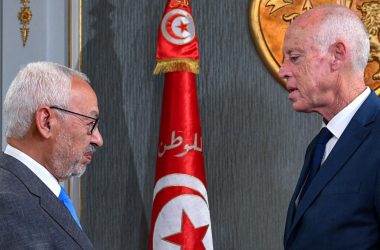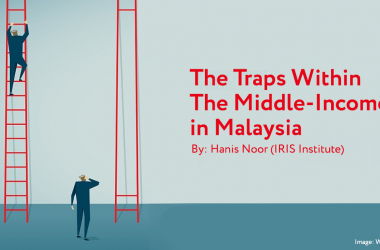YANG di-Pertuan Agong, Al-Sultan Abdullah Ri’ayatuddin Al-Mustafa Billah Shah and Prime Minister Tan Sri Muhyiddin Yassin had launched a concurrent securitisation of the Covid-19 pandemic in the interests of Malaysia.
The king securitised this pandemic on Jan 12 through an Emergency proclamation under Article 150 (1) of the Federal Constitution. Muhyiddin, meanwhile, did the same through the enforcement of a three-tier Movement Control Order (MCO) announced on Jan 11, 2021.
To securitise the pandemic is to declare this global health issue as a critical threat to Malaysia and its people, and enable it to be mitigated urgently through the use of extraordinary policies and strategies.
This move is crucial because as observed by Apolline Rolland in “The securitisation of Covid-19: implications for civilian privacy” (Sept 16), Covid-19, which was “first presented as a distant health issue… (had) quickly became a fundamental security threat which required exceptional measures. It bypassed normal politics and impacted the regular functioning of health services, nations and society as a whole”.
Specifically, the Malaysian actions have enabled the government to mitigate the Covid-19 pandemic through a more centralised, coordinated, holistic and effective manner, by applying emergency security management strategies and through urgent and extraordinary approaches.
According to Dionysios Stivas and Krzysztof Sliwinski, in their article “Securitising Coronavirus: Global Risks, Responses, and Consequences” (Sept 8), most countries are now using a-securitisation, hyper-securitisation or pre-emptive securitisation approaches to curb the pandemic.
A-securitisation “occurs when political actors declare critical social phenomena as security-irrelevant, and consequently treat them as such”. Hyper-securitisation “takes place when the emergency actions taken by governments are super-extraordinary and linger even after the containment of the declared threats”.
Pre-emptive securitisation “occurs when states proceed with enacting extraordinary measures even when the perceived threats appear to be distant and/or avoidable”. In the context of the on-going outbreak, most governments “moved along the a-securitisation to hyper-securitisation”.
The concurrent securitisation by the Malaysian government is categorised as “proactive”. From a security management perspective, this is to protect human, economic, public institution and national security.
Its primary aims — saving the lives and livelihood of all Malaysians, protecting the economy, its recovery and regeneration, enhancing the effectiveness and widening the scope of the country’s security management, and strengthening the nation’s health services, its capacity, capability and facilities in the context of mitigating the fourth wave of the Covid-19 pandemic, mostly involving Malaysians.
Additionally, the proclamation of emergency by the king enables the government to secure urgent requirements by all stakeholders involved in curbing the spread of the pandemic, be it administrative, legal, financial and/or logistic.
The concurrent proactive securitisation in Malaysia was decreed by the king based on the advice from the cabinet and based on the consent of the Malay Rulers. It is further legitimised by the country’s administrative-legal-security elites comprising the chief secretary to the government, the attorney-general, the chief of the armed forces, the inspector-general of police and the secretary-general of the Health Ministry.
Nonetheless, although this caused the Parliament and all state legislative assemblies to be “suspended temporarily” until such a time “being decided by the king”, this emergency “is not a military coup” and no curfew “will be enforced”, while “the civilian government will continue to function” as usual, but with certain limitations as spelt out in the various standard operating procedures (SOP).
The “health emergency” is also declared because the situation in the country “is very alarming” with Malaysia’s “healthcare system under tremendous pressure now than at any other time since the start of the pandemic”; and Malaysia’s healthcare system “is at breaking point”.
This is evident from the current “R-naught value” projection that the daily infection rate may reach 5,000 cases in April and 8,000 in the fourth week of May.
The estimates have not factored in the possibility of infections that may occur at flood relief centres, which currently provide shelter to almost 20,000 victims.
In conclusion, the present “proactive securitisation” of the pandemic is legitimate, constitutional, crucial and timely. Malaysians and health-security stakeholders as the audiences to this move have approved it. Hence, politicians from both divides must not politicise this security threat, but render their fullest support to it for the sake of the country.
Datuk Dr Ruhanie Ahmad is an analyst of strategic and security issues, and was a member of parliament for Parit Sulong, Johor, 1990-2003











